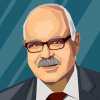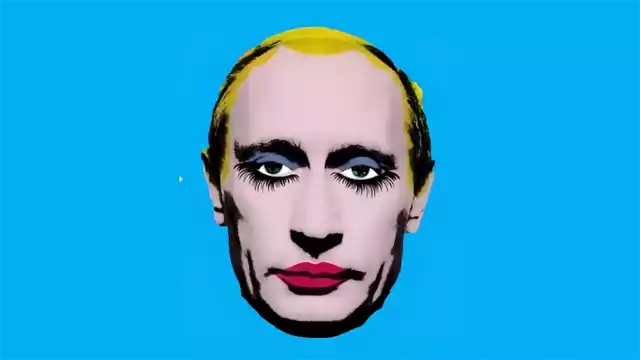Russia’s 2012 presidential election is already effectively over since Prime Minister Vladimir Putin has decided to reclaim his old Kremlin office. By all indications, Putin plans to stay in the Kremlin for two more presidential terms — another 12 years — as he is enabled to do by the recently amended Constitution. So who will be the country’s next president is now a certainty. Less obvious is what he hopes to achieve.
One issue, however, has now shot to the top of Russia’s political agenda: Eurasian integration. In early October, Putin wrote an article in Izvestia that proclaimed what appears to be his reigning foreign policy goal: a “Eurasian Union” of former Soviet states. Two weeks later, in St. Petersburg, he hosted a meeting of Commonwealth of Independent States prime ministers, eight of whom signed an agreement establishing a free trade area among their countries. On Jan. 1, Belarus, Kazakhstan and Russia, which now form a customs union, will join a single economic space.
And Putin wants even more: a Eurasian Schengen free movement of people among the three countries, built on the example of the European Union by 2015, followed by a currency union and, ultimately, full economic integration. Indeed, Putin wants to restructure Russia’s relations with the former Soviet states to create not merely a bigger market, but eventually an economic bloc-cum-security alliance.
The feasibility of this plan is not to be taken for granted. Ever since the Soviet Union collapsed 20 years ago, there has been much talk about reintegrating the successor states. Little has come of it, owing mainly to Russia’s reluctance to support the other countries financially. At the same time, the other CIS countries have maintained an overriding focus on their own state-building and independence vis-a-vis Russia. Both factors, however, may now be changing — at least somewhat.
Russia, which six years ago abruptly ended its energy subsidies to Ukraine, Belarus, Moldova and others, is now expressing interest in supporting some of its struggling neighbors, in exchange for some of their most lucrative assets. During the 2008-09 global crisis, Moscow began to strengthen its regional economic standing and promote the establishment of the customs union with Belarus and Kazakhstan, even at the risk of complicating its own bid for membership in the World Trade Organization.
For Russia’s partners, too, the current forms of integration, such as the customs union and the forthcoming single economic space, are pragmatic arrangements that serve their interests. In Belarus and Kazakhstan combined, Russia has gained 25 million potential new consumers; Belarus and Kazakhstan, for their part, have widened their access to the 140-million-strong Russian market.
The Russian market is also attractive to many others, from tiny Kyrgyzstan to sizable Ukraine. In Ukraine’s case, for example, the prospects of closer association with the EU have dimmed recently, owing to the EU’s internal difficulties, as well as to the Ukrainian authorities’ politically motivated prosecution of former Prime Minister Yulia Tymoshenko.
In his much-quoted Izvestia piece, Putin denied that his new integration plans are aimed at restoring the Soviet Union under another name. This is a credible claim for three basic reasons: the complete evaporation of Russia’s imperial elan, its unwillingness to pay other countries bills and the new countries unwillingness to cede too much sovereignty to the former hegemon.
Consequently, Russia has been strict about the terms of its financial assistance to Belarus, pressing its government to open up its economy to Russian businesses. And for all their interest in the Russian market, neither Belarus nor Kazakhstan has acceded to the Kremlin’s desire that they recognize the independence of Georgia’s breakaway Abkhazia and South Ossetia regions.
Putin is ambitious, but he is also cautious. He probably sees that only mutual economic interest can do the trick. Creating a new Council for Mutual Economic Assistance — or COMECON, the Soviet-era trade bloc — or a new Warsaw Pact is as impossible as a latter-day Soviet Union. Eurasian economic integration, if it stands a chance, must follow a different path.
If all parties concerned join voluntarily and proceed in a step-by-step manner — as with the EU or the North American Free Trade Agreement — Eurasian integration will benefit all of those involved. Rather than behaving like an empire secretly trying to reinvent itself, Russia has an opportunity to become a regional leader. But Eurasian integration will fail if Russia’s partners see the process as the Kremlin’s attempt at political domination.
All of this has geopolitical implications. In Eastern Europe, Russia is clearly drawing Belarus closer and is competing with the EU over Ukraine’s future economic orientation. Meanwhile, in Central Asia, Russia, having built strong economic ties with Kazakhstan, is now reaching out to Kyrgyzstan, thus competing more actively with neighboring China. Rather than choosing between Brussels and Beijing, Moscow now seeks to turn Russia’s post-imperial neighborhood into a community. And as a long-term goal, Putin envisions a close economic relationship between his Eurasian Union and the EU in what he calls a Greater Europe.
In the West, Putin’s best-remembered statement about the Soviet Union described its end as the “greatest catastrophe of the 20th century.” But Putin’s other comments, less familiar to Western readers, refer to the Soviet system as “unviable.” In his ruthless judgment, those who want the Soviet Union back “have no brains.”
Twenty years after the loss of its 20th-
century empire, Russia is ready to move toward a new kind of integration with its former provinces. This is not intended as a threat to others. Rather, economic integration is a test of how much Russia has learned about the world since 1991 and of how much more modern it has become as a result.
Dmitry Trenin is director of the Carnegie Moscow Center. His latest book is Post-Imperium: A Eurasian Story. © Project Syndicate
A Message from The Moscow Times:
Dear readers,
We are facing unprecedented challenges. Russia's Prosecutor General's Office has designated The Moscow Times as an "undesirable" organization, criminalizing our work and putting our staff at risk of prosecution. This follows our earlier unjust labeling as a "foreign agent."
These actions are direct attempts to silence independent journalism in Russia. The authorities claim our work "discredits the decisions of the Russian leadership." We see things differently: we strive to provide accurate, unbiased reporting on Russia.
We, the journalists of The Moscow Times, refuse to be silenced. But to continue our work, we need your help.
Your support, no matter how small, makes a world of difference. If you can, please support us monthly starting from just $2. It's quick to set up, and every contribution makes a significant impact.
By supporting The Moscow Times, you're defending open, independent journalism in the face of repression. Thank you for standing with us.
Remind me later.







